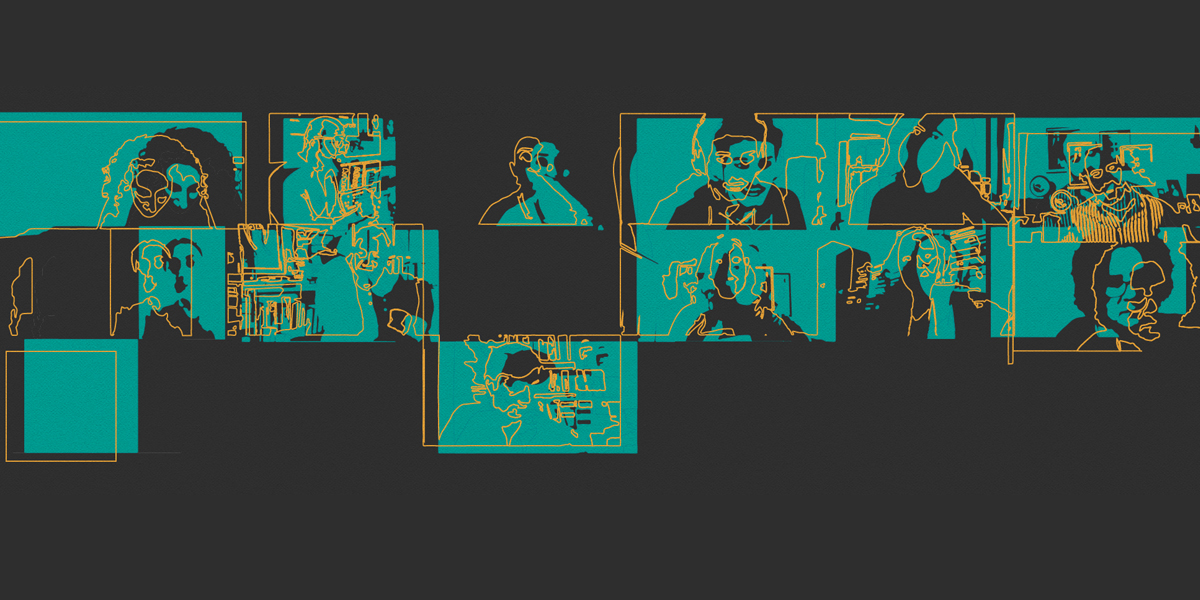[Editor’s note: This article is the ninth in a series published in collaboration with Mada Masr to mark the tenth anniversary of the Egyptian revolution. It is also available in Arabic.]
On its tenth anniversary, the Egyptian revolution that began on January 25, 2011 is being widely commemorated. Thinking back to its earliest days, I am struck by how hard it was for many activists, journalists, and intellectuals—including myself—to imagine that a popular revolt could successfully unseat an entrenched autocrat. Before January 25, nobody that I talked to knew that they were on the cusp of something extraordinary. Journalists and pundits prophesized that there would be no revolution. Friends and activists joked about the fanciful possibility of occupying the city’s main square. When the day arrived and protesters managed to take Tahrir for a few hours, these certainties were only slightly shaken. The next morning, I co-wrote an editorial for my newspaper in which we wondered timidly if the protests would grow, never seriously entertaining the possibility that the regime could soon fall.
All that changed by January 27 when a feeling that we might witness an unprecedented mobilization began to spread. Twenty-four hours later, Egyptian police and security forces collapsed in the face of countrywide demonstrations, and a president that had ruled Egypt for three decades was suddenly on his last legs.
A few weeks ago, conversations with friends at Mada Masr and Al-Jumhuriya encouraged me to think about another revolutionary episode that happened more than a century and a half ago: The European revolutions of 1848. That year, Karl Marx and Friedrich Engels published The Communist Manifesto, warning that Europe was haunted by the specter of communism. Their premonition was not entirely incongruous with the mood of the age. The events of 1848 broke out in the decades-long aftermath of the French Revolution when many European intellectuals had grown accustomed to thinking about the development of their societies in terms of momentous upheavals and transformations. History was a sequence of dramatic ruptures that unfolded in progressive fashion.
These were very different circumstances than our own. In 2011, many around us inhabited a stability zeitgeist that had been in the making for the previous two decades. Experts argued that authoritarianism was durable, rulers told their populations that maintaining order was the raison d’être of politics, and many activists and reformers believed that meaningful change, if not altogether hopeless, would never happen through spectacular confrontations with power. This mood began to change in the final years of Mubarak’s presidency. More often than not, however, the antithesis to the rule of a strongman in the imagination of writers, intellectuals, and filmmakers was chaos, not effective political mobilization.
The defeat of the 1848 revolutions pushed Marx and his family into exile where a life of poverty and illness awaited them. In 1852, Marx wrote The Eighteenth Brumaire of Louis Bonaparte in which he examined how Louis Napoleon seized the momentum of the revolution to launch a coup d’état and proclaim himself emperor. The prophetic Marx who had predicted the violent overthrow of the bourgeoisie three years earlier gave way to an analytical Marx who was compelled to reflect on how a revolutionary upsurge in France with republican demands had once again ended in monarchical rule.
Since 2013, commentators ranging from mainstream social scientists to leftist organizers have occasionally summoned the Brumaire or its related concepts to make sense of a popular revolution in Egypt that ended two years later with a military takeover. But searching for authoritative analogies from Western Europe’s past to diagnose Egypt’s condition today—for example, by describing the military regime that currently rules the country as Bonapartist—can be fraught with intellectual dangers. Rather than borrow ideas from the text to readily explain our present, a more constructive reading of the Brumaire might find inspiration in its approach to thinking about history, asking how it can help us reflect on our own recent pasts.
Although it contains some signs of 19th-century linear historical thinking, the Brumaire does not indulge too heavily in any promises of future emancipation or prescriptions for how to attain it. The thrust of the text is more reflexive than teleological. In the famous opening pages, Marx writes “the tradition of all the dead generations weighs like a nightmare on the brains of the living.” The actions of parties, factions, and social classes that he goes on to recount are conditioned by accumulated traces from the past, but they do not simply perform a pre-existing script. Marx narrates the events between 1848 and 1851 as a series of advances and retreats by different actors and classes, rather than an inexorable movement forward in time. Revolutions do not happen outside of history, nor does history necessarily tend towards revolution.
As the anniversary passes, some commemorative accounts still lean towards a moralistic nostalgia that locates the roots of the revolution in seemingly timeless aspirations. In this retelling, protesters were motivated by a generic list of grievances, from corruption to repression, and a universal yearning for justice. Their unwillingness to channel these complaints and desires towards a common purpose after Mubarak’s ouster, we are told, ended tragically in a failed transition to democracy.
What happened in 2011 had more specific coordinates in time and space. The Egyptian revolution and its aftermath were born out of a convergence of patterns that developed since the 1970s—neoliberal restructuring, growing precarity, cronyism, rejuvenated Islamism, an overbearing police empire, popular mobilizations, and realignments with regional and international powers. But circumstances that make revolutions possible do not usually make them happen. To unfold the way it did, the revolution required pivotal actions and decisions that were harder to anticipate and that were usually carried out by smaller numbers of people—protesters who burned down police stations, civilian elites who engaged in factionalism, Obama administration officials who gave mixed signals, and Egyptian army and police officers who made fateful choices. On their own, any of these dynamics could have led to different outcomes.
Anniversaries usually provoke us into recollection, and the act of remembering often carries a pretense of objectivity, of reconstructing the past exactly as it happened. But there is no singular, authentic narrative of the revolution, nor should there be. The revolutionaries were neither heroes nor victims in any absolute sense. The revolution was neither a conspiracy hatched by regional or international powers, as regime media figures now retell it, nor did it bring the country to the cusp of a genuine democratic transformation, as partisans of the Muslim Brotherhood like to believe.
Remembering the history of the revolution as a messy affair, neither bounded by fixed beginnings and endings, nor reduced to a simple matter of failure or success, leaves open the possibility that our understandings of what happened might be revised in the future. We always see the past through the windows of the world we inhabit; as our present changes so too will the stories we tell about how we arrived to it. The fragments of history from those two years—those who joined the revolt and those who did not, those who confronted the ruling generals and those who reconciled with them, those who devoted themselves to lofty ideals and those who attended to more quotidian concerns—need not be arranged into a story that is too much neater than the past it seeks to capture. Just as the revolution itself surprised us in January 2011, retrieving its memories and narrating them ought to surprise us too.





